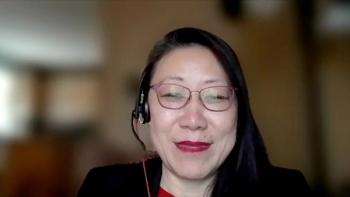
Sophia Humphreys, PharmD, MHA, BCBBS, discusses highlights of the Institute for Value-Based Medicine® (IVBM) event, held in partnership with Providence Health System, that recently took place in Newport Beach, California.

Sophia Humphreys, PharmD, MHA, BCBBS, discusses highlights of the Institute for Value-Based Medicine® (IVBM) event, held in partnership with Providence Health System, that recently took place in Newport Beach, California.

Amy Laughlin, MD, MSHP, of Orlando Health gave a preview of the topic she is presenting on at today's American Journal of Managed Care®’s Institute for Value-Based Medicine® event in New York City.
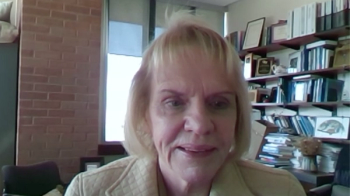
Kathi Mooney, PhD, RN, FAAN, of the University of Utah, gave a preview of "The Oncology Hospital at Home," the presentation she is giving at The American Journal of Managed Care®’s Institute for Value-Based Medicine® event on November 2 in New York City.

Kristine Slam, MD, FACP, discusses the importance of genetic testing in male patients with breast cancer and why it’s important that all patients with breast cancer advocate for themselves.

Erin Gillaspie, MD, MPH, FACS, a faculty member of Vanderbilt University Medical Center’s (VUMC's) department of thoracic surgery, discussed trials that helped lung cancer surgeries evolve.
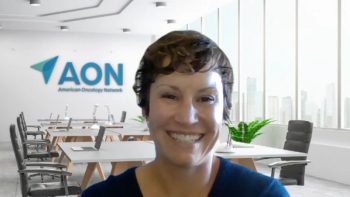
To ensure patients are getting timely access to their treatments, there needs to be better collaboration between payers and providers, said Christine Pfaff, RPh, senior regional director of operations, American Oncology Network.

Kristine Slam, MD, FACP, Central Ohio Surgical Associates, addresses the importance of involving patients in decisions regarding their goals for treatment, emphasizing that this involvement is critical to uncover what they value, as well as their short- and long-term goals for treatment.

Alma Habib, MD, The Ohio State University Comprehensive Cancer Center, talks about the fact that disparities are able to be recognized in leukemia/lymphoma care, but the questions of how to address these disparities remain.

Jennifer Vaughn, MD, discusses how value-based care in hematology should consider cost and financial toxicity, as well as valuable patient experience.
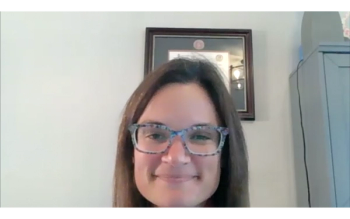
Sarah Wall, MD, talks about how it’s important to consider patient age when treating older patients with cancer because it will impact so many of them and blood cancers act differently and can be more aggressive in older adults.

Rajini Katipamula-Malisetti, MD, executive vice president at Minnesota Oncology, discussed what her practice is doing to continue improving patient care.

Christine Pfaff, RPh, senior regional director of operations at American Oncology Network, discusses the role of immunotherapy and precision medicine in oncology, as well as considerations for patient safety and financial toxicity when prescribing oncology drugs.

Rajini Katipamula-Malisetti, MD, executive vice president of Minnesota Oncology, defined value-based cancer care and its importance.
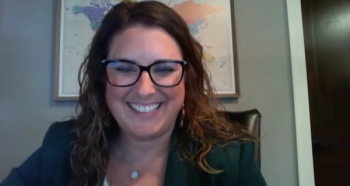
Rhonda Henschel, US Oncology Network's vice president of payer relations, summarized what she learned from the Minnesota Oncology IVBM and discussed new developments in the value-based cancer care space.

Jennifer Sturgill, DO, Central Ohio Primary Care, discusses how shortages of antibiotics and medications for attention-deficit/hyperactivity disorder have affected primary care, as well as addresses the impact on heart failure care of CMS’ recent announcement of the first 10 drugs up for price negotiation in 2026 under the Inflation Reduction Act (IRA).

Fee-for-service care is not really in line with how primary care physicians think or how primary care should be delivered; the crux of value-based care is wanting patients to have the care they want and need, noted Kristin Oaks, DO, Agilon regional medical director at Central Ohio Primary Care.

In this interview from our recent Institute for Value-Based Medicine® event, Kristine Slam, MD, FACP, Central Ohio Surgical Associates, discusses the positive impact that Choosing Wisely and enhanced recovery after surgery, or EROS, protocols have had on patients receiving treatment for breast cancer.
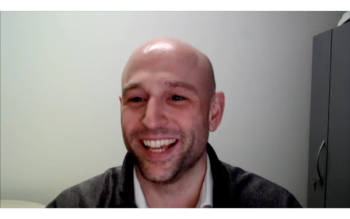
Adam Kittai, MD, discusses how value and waste in treatment are imperative to consider in value-based care for blood-based cancers.

Erin Gillaspie, MD, MPH, FACS, a faculty member of Vanderbilt University Medical Center’s Department of Thoracic Surgery, discusses new technologies making surgery on lung cancer tumors easier and expresses what currently excites her within the lung cancer space.

Lisa Kottschade, RN, CNP, FAPO, a nurse practitioner at Mayo Clinic, discussed immune-related adverse events and biomarkers in relation to melanoma treatment.

The number one ingredient that an oncology-based alternative payment model needs to succeed is collaboration, explained Nicolas Ferreyros, managing director of policy, advocacy, and communications, Community Oncology Alliance (COA).

Erin Gillaspie, MD, MPH, FACS, a faculty member of Vanderbilt University Medical Center’s Department of Thoracic Surgery, discussed the role of immunotherapies in lung cancer and how they are used.
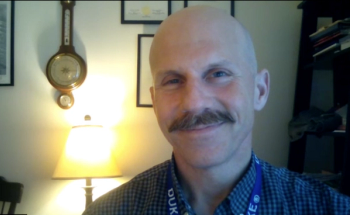
Matthew Crowley, MD, MHS, associate professor of medicine, Duke University School of Medicine, discusses telehealth initiatives at Duke Health, as well as overcoming virtual challenges and barriers that underserved and underinsured patient populations who need diabetes care face.

In a few short years, biosimilars have driven down total cost of care in oncology through providing competition for expensive drugs, explained Christine Pfaff, RPh, senior regional director of operations, American Oncology Network (AON).
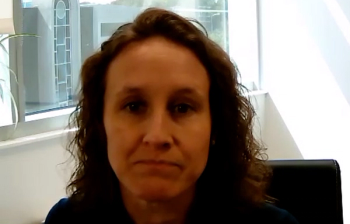
Meredith McKean, MD, MPH, the associate director of the Sarah Cannon Research Institute's Melanoma and Skin Cancer Research Program at Tennessee Oncology, discussed new melanoma studies and treatment developments.

Jennifer Sturgill, DO, inpatient medical director of population health, Central Ohio Primary Care, co-presented “Value-Based Care: What Is It and Why Should We Care?” at our most recent Institute for Value-Based Medicine® event with the Zangmeister Cancer Center of Columbus, Ohio, on September 14.

Kristin Oaks, DO, Agilon regional medical director at Central Ohio Primary Care, spoke at our recent Institute for Value-Based Medicine® event held with Zangmeister Cancer Center. Here, she addresses the importance of value-based care within the primary care space.

Erin Gillaspie, MD, MPH, FACS, a faculty member of Vanderbilt University Medical Center’s Department of Thoracic Surgery, explained what testing needs to be done to identify the best treatment for patients with lung cancer.

We are in the midst of a transformative time in oncology that could also be a little scary if you are not prepared, said Nicolas Ferreyros, managing director of policy, advocacy, and communications, Community Oncology Alliance.

In this interview from our Institute for Value-Based Medicine® event, held in partnership with the Zangmeister Cancer Center of Columbus, Ohio, on September 14, Kristine Slam, MD, FACP, Central Ohio Surgical Associates, discusses the benefits of value-based care in the breast cancer space.

259 Prospect Plains Rd, Bldg H
Cranbury, NJ 08512
© 2025 MJH Life Sciences®
All rights reserved.
